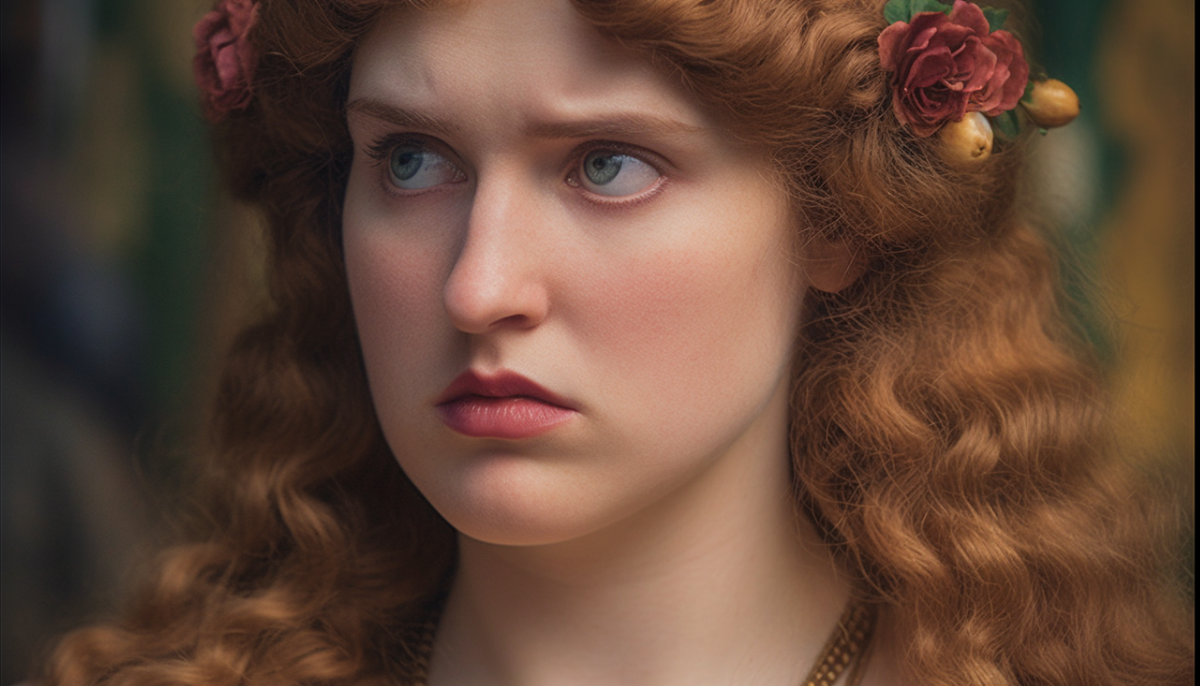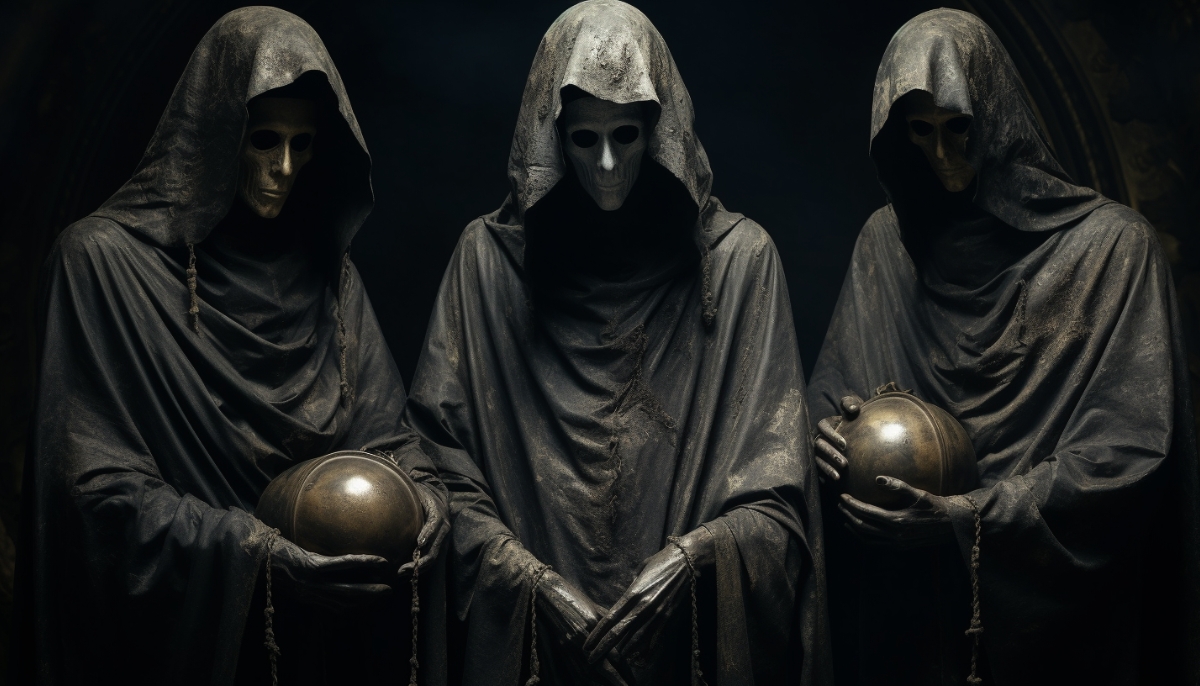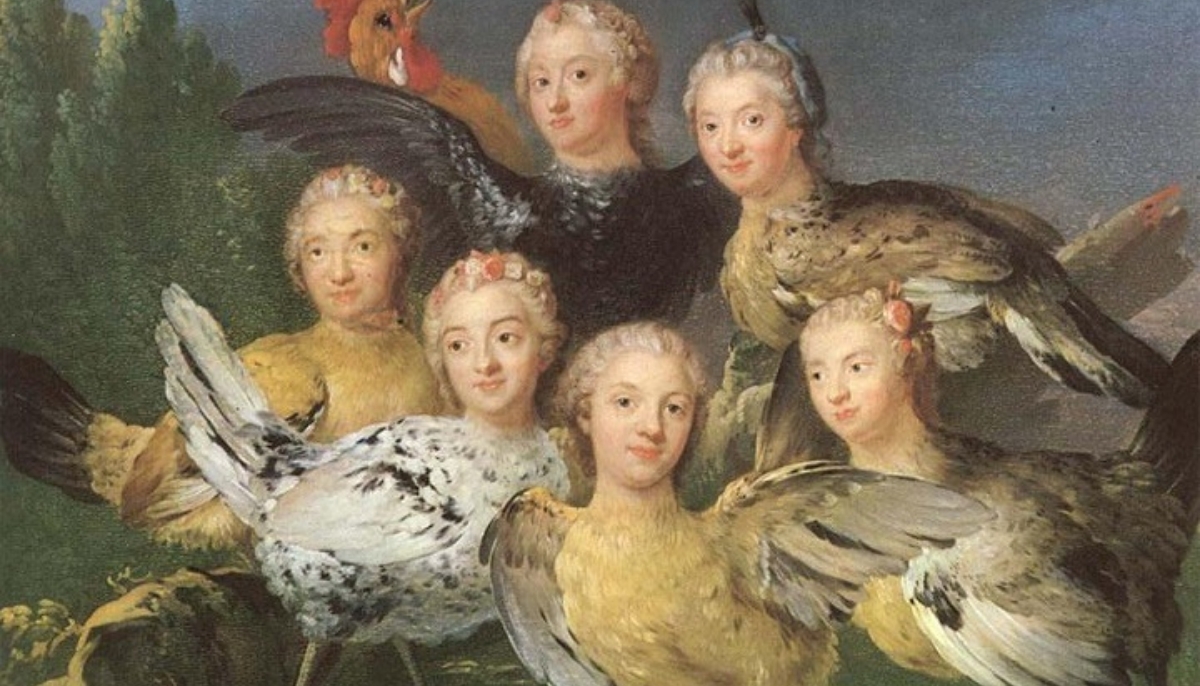Diving into the heart of Greek mythology, our article sets out to uncover the truth behind the so-called ‘evil‘ gods like Hades, Ares, and Hera. These deities, often misunderstood through the lens of modern morality, reveal a complex narrative that goes beyond the binary of good and evil.
We begin by unpacking the stories and actions that have painted them in a sinister light before pivoting to explore the ancient Greeks’ perspective on morality.
Join us as we peel back the layers of mythology to reveal the true nature of the Greek gods and answer the question, are the Greek gods evil?
Examples of evil Greek gods
The Greek pantheon is rich with stories of gods whose actions and domains might make them appear malevolent, especially when judged by modern moral standards.
This exploration does not aim to cast these deities as purely evil but to highlight instances where their behavior or roles could be interpreted as such.
hades – The Underworld’s Ruler
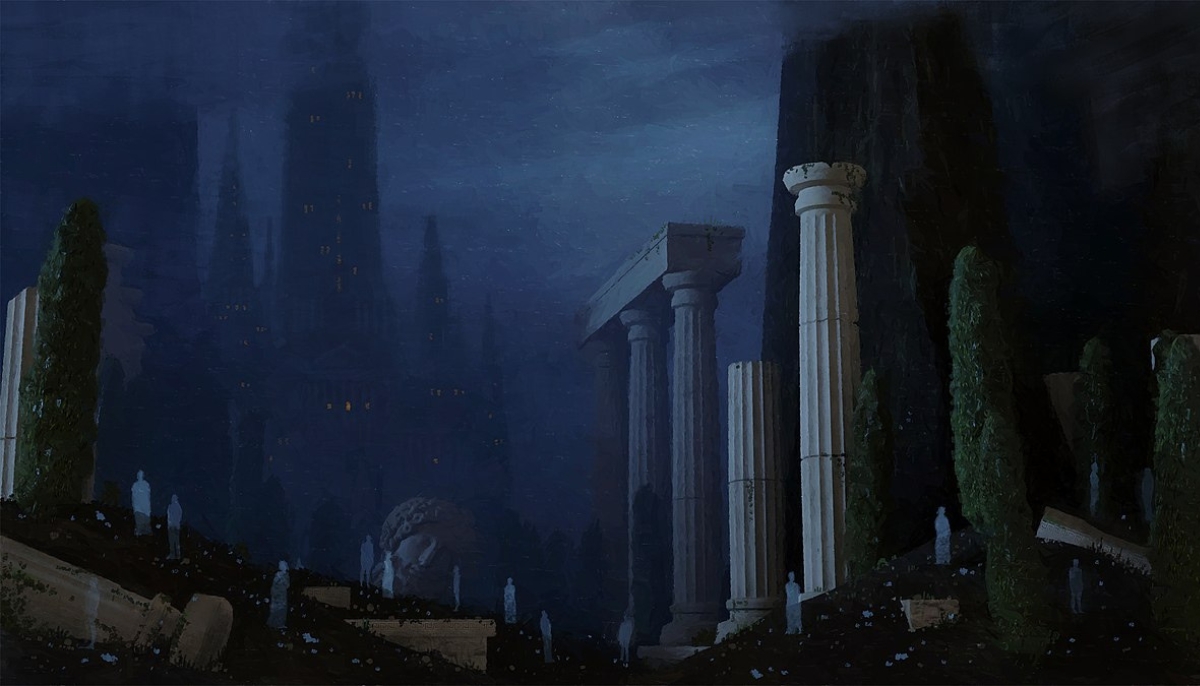
Hades, the master of the underworld, is often seen in a negative light, primarily because of his domain over the dead and the infamous abduction of Persephone.
This act alone cast a shadow over the earth, bringing a period of gloom. His role also involves judging the dead, a task that, while necessary, does not endear him to mortals.
Ares – The Bloodthirsty God of War
Ares, the god of war, embodies the brutal aspects of conflict. Known for his ferocity and a penchant for slaughter, Ares was not widely worshipped or loved.
His companions were figures of terror and destruction, and his chariot was pulled by horses named Terror, Fire, Flame, and Trouble. Such characteristics make Ares a figure of dread in Greek mythology.
Hera – The Vengeful Queen of the Gods
Despite being the goddess of marriage and childbirth, Hera often let her jealousy and spite dictate her actions. Her vendettas were usually directed at Zeus’s mistresses and their offspring.
Notably, her wrath led to the Trojan War’s initiation over a beauty contest snub and an attempt on the life of Heracles, Zeus’s son, by sending snakes to kill him in his crib. Hera’s actions, driven by personal vendettas, showcase a darker side of divine intervention.
So, Are the Greek gods evil?
No, Greek gods are not evil within the context of ancient Greek morality. To the Greeks, these deities played roles that reflected the complexities of life and human nature, not confined to simple notions of good and evil.
However, when viewed through the lens of modern Christian morality, their actions might indeed be seen as evil. It’s essential to evaluate these gods based on the values and beliefs of their own time and culture rather than imposing contemporary moral judgments on ancient deities.
Morality in Greek Mythology
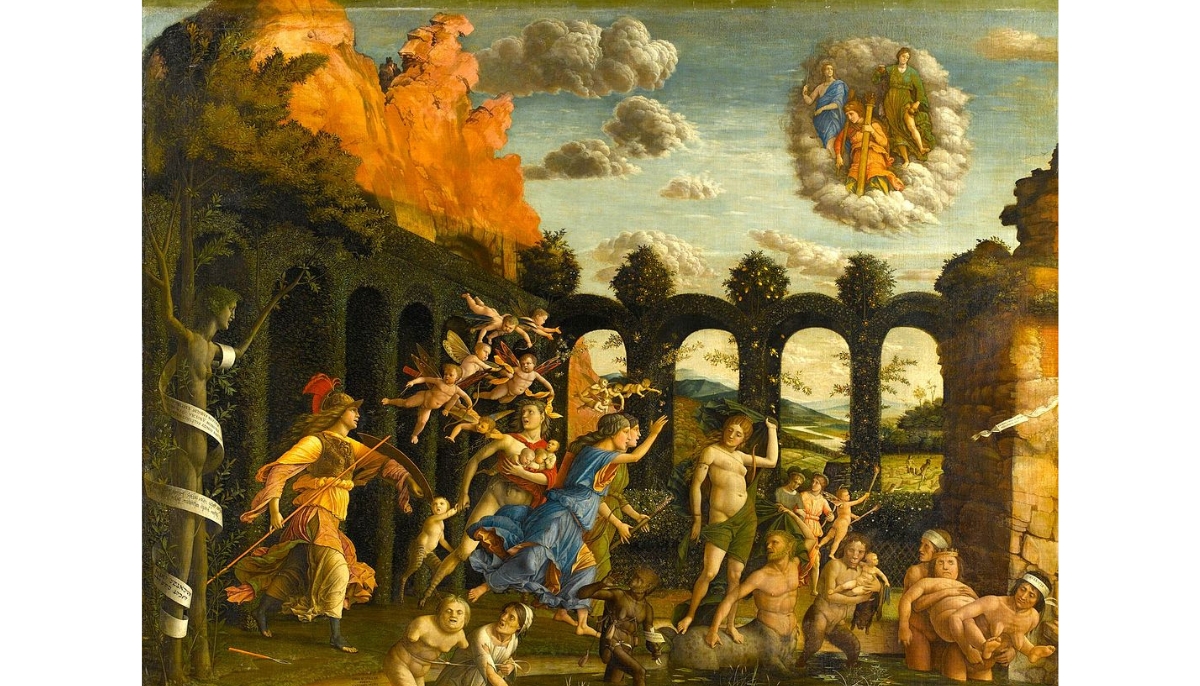
Greek mythology does not simplistically categorize gods as good or evil; instead, it delves into the consequences of human-like flaws such as arrogance, envy, betrayal, and selfishness.
Gods who seem to embody negative traits or punish moral transgressions serve as cautionary figures against the destructive power of these flaws. The narratives are less about labeling deities as evil and more about highlighting the importance of moral virtues.
Judeo-Christian Morality vs. Ancient Greek Views
Even for those who do not personally identify with Christianity, it’s pivotal to recognize that much of our contemporary moral and ethical framework has its roots in Judeo-Christian values.
This influence is deep-seated, shaping concepts of equality, the inherent sanctity of life, and the comprehensive set of human rights understood in the modern context. These principles, though widely accepted today as universal truths are, in fact, a reflection of a specific cultural and religious heritage.
When we approach Greek mythology, our interpretation is invariably filtered through this Judeo-Christian lens. This means that we often unknowingly impose a set of moral expectations and values onto stories and characters conceived within a vastly different framework.
Don’t let democracy confuse you.
The ancient Greeks and Romans had their own moral, societal, and natural understandings, which did not necessarily align with what we consider moral and just today.
The democratic systems and societal structures of ancient civilizations are sometimes superficially compared to modern democracies, leading to a mistaken belief in a shared moral foundation.
However, this overlooks critical differences in worldview. For instance, concepts such as equality under the law or the intrinsic right to life, cornerstones of modern human rights, were not universally applied or even recognized in the same way in ancient times.
This discrepancy means that when we read Greek myths, we’re not just reading the myths themselves but interpreting them through a Christian-influenced view of morality. Separating our modern perspectives from the ancient context is challenging but necessary to truly understand these myths.
Recognizing this lens allows us to appreciate Greek mythology’s original intentions and lessons more accurately, understanding that our interpretations are colored by centuries of evolving morality and ethics. This awareness is crucial for anyone looking to engage deeply with ancient texts and appreciate the complexities of cultural and moral relativism.
The Natural Order and Greek Deities
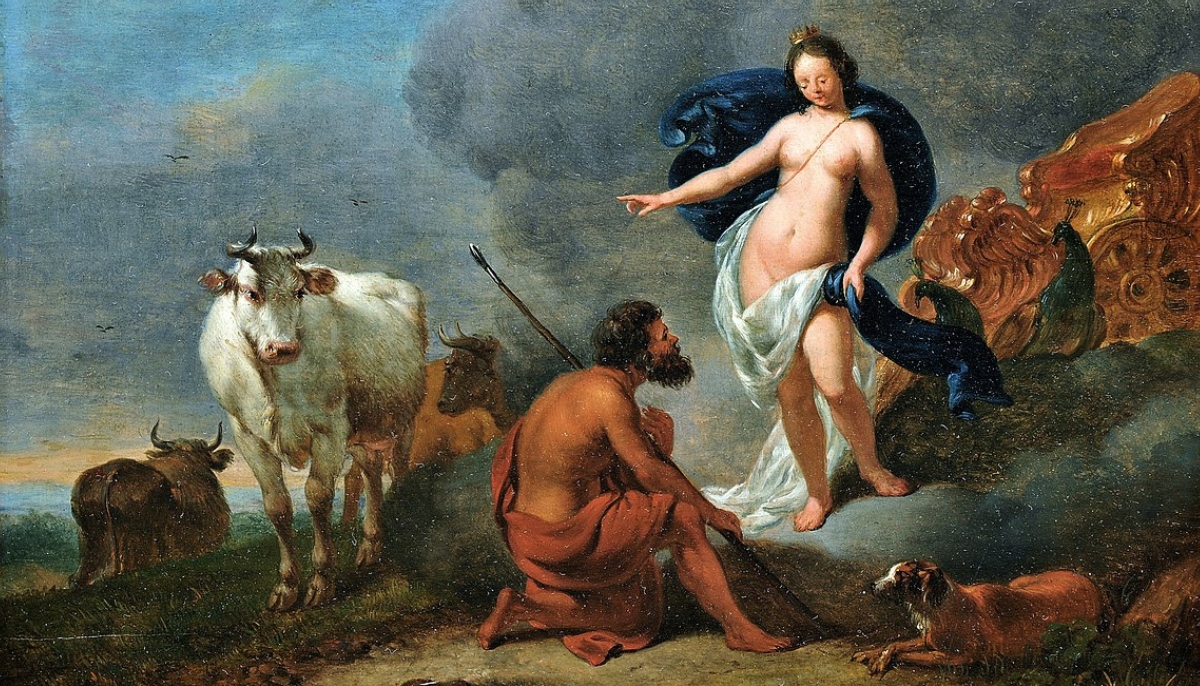
To the Greeks, gods were forces of nature, embodying the chaotic and unpredictable elements of the world. Just as we wouldn’t consider a natural disaster evil for the destruction it causes, ancient Greeks viewed their gods’ actions through a similar lens.
Hades wasn’t evil for overseeing the underworld; he was fulfilling his role within the cosmic order. This perspective emphasizes acceptance of the natural world’s complexities, including its harsher aspects.
The Flawed Nature of Greek Gods
The gods of Greek mythology were intentionally depicted with human flaws, making them relatable but also fallible.
Hera’s jealousy and the ensuing actions, for instance, are not judged by the standards of Christian morality but are seen as inherently human (or divine, in this context) reactions.
The Greeks did not expect their gods to be paragons of virtue but accepted them as beings with complex personalities and motivations.
Labeling Greek gods as evil reflects a misunderstanding of the ancient Greeks’ worldview and the narrative function of these myths. These stories were meant to explore the human condition, offering lessons on the virtues and vices that shape our existence.
Understanding this context allows us to appreciate Greek mythology without imposing modern moral judgments. The gods, with their diverse and complex natures, were reflections of the natural and human worlds, not embodiments of evil.
This nuanced understanding encourages a deeper appreciation of ancient stories and their lasting impact on our cultural imagination.

